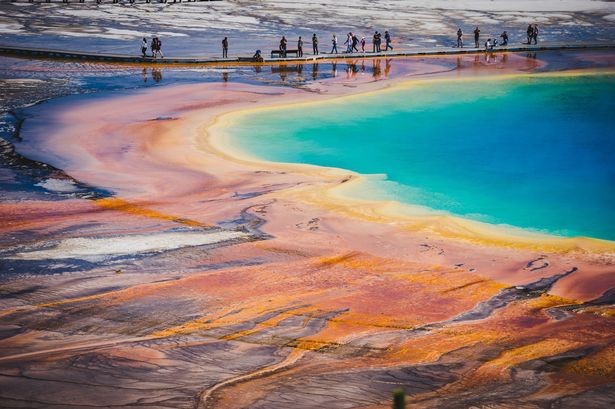Professor Michael Branney, a volcanologist at the University of Leicester, has warned that Yellowstone could erupt at any time – with potentially catastrophic consequences

Every year, millions of visitors flock to Yellowstone National Park to get a glimpse at one of the largest volcanoes in the world.
But a new warning from one volcanologist may put you off planning a trip to the famous landmark.
Professor Michael Branney, a volcanologist at the University of Leicester , has warned that Yellowstone could erupt at any time – with potentially catastrophic consequences.
Speaking to Mirror Online, he said: “Yellowstone will erupt again, but it is not known when this will happen or on what scale – volcanoes do not erupt according to a timetable or schedule, and the next major eruption could be far away in the future.”
If Yellowstone did erupt, the consequences would depend on the size of the explosion, according to Professor Branney.


Dinosaurs were killed by asteroid and not volcanoes, scientists confirm

Astronaut’s stunning photo of Mount Vesuvius from International Space Station
The last large explosive eruption from Yellowstone was about 630,000 years ago, and another similar eruption could be ‘catastrophic.’
Professor Branney explained: “The area in and around Yellowstone would be buried in hot ash from pyroclastic density currents, killing the biota across the region.
“Volcanic ash would fallout further across Central and Eastern and USA and into the NW Atlantic ocean, burying crops, towns, preventing ground and air travel, hazardous to inhale, and choking-up drainage systems causing floods.
“In time, biota tends to naturally recover from such environmental catastrophes, but burgeoning human populations and infrastructures would be hugely adversely affected.”
While the findings may fill you with dread, thankfully Professor Branney added that Yellowstone is constantly monitored, meaning a large explosive eruption could probably be preempted.
He added: “Should a large explosive eruption occur at Yellowstone, there would probably be some warning, because precursory activity (ground deformation, earthquakes, gas release) tends to escalate before a large magmatic eruption. The volcano is being monitored.”
Sourse: www.mirror.co.uk
I am excited to share with you a review of Maria, a fortune teller who helped my husband overcome a…
I would like to share my delightful experience of working with fortuneteller Maria Nikolayevna. Her talent and ability to predict…
It was very difficult for me after my husband left me. I tried everything I could to convince him to…
Lately, many of my acquaintances wonder why I have blossomed and look so happy. But before, I was a gloomier…
Со мной судьба поступила жестоко. Год назад меня с ребенком бросил любимый муж. В начале марта прошлого года в Мариуполе,…
Your email address will not be published.
